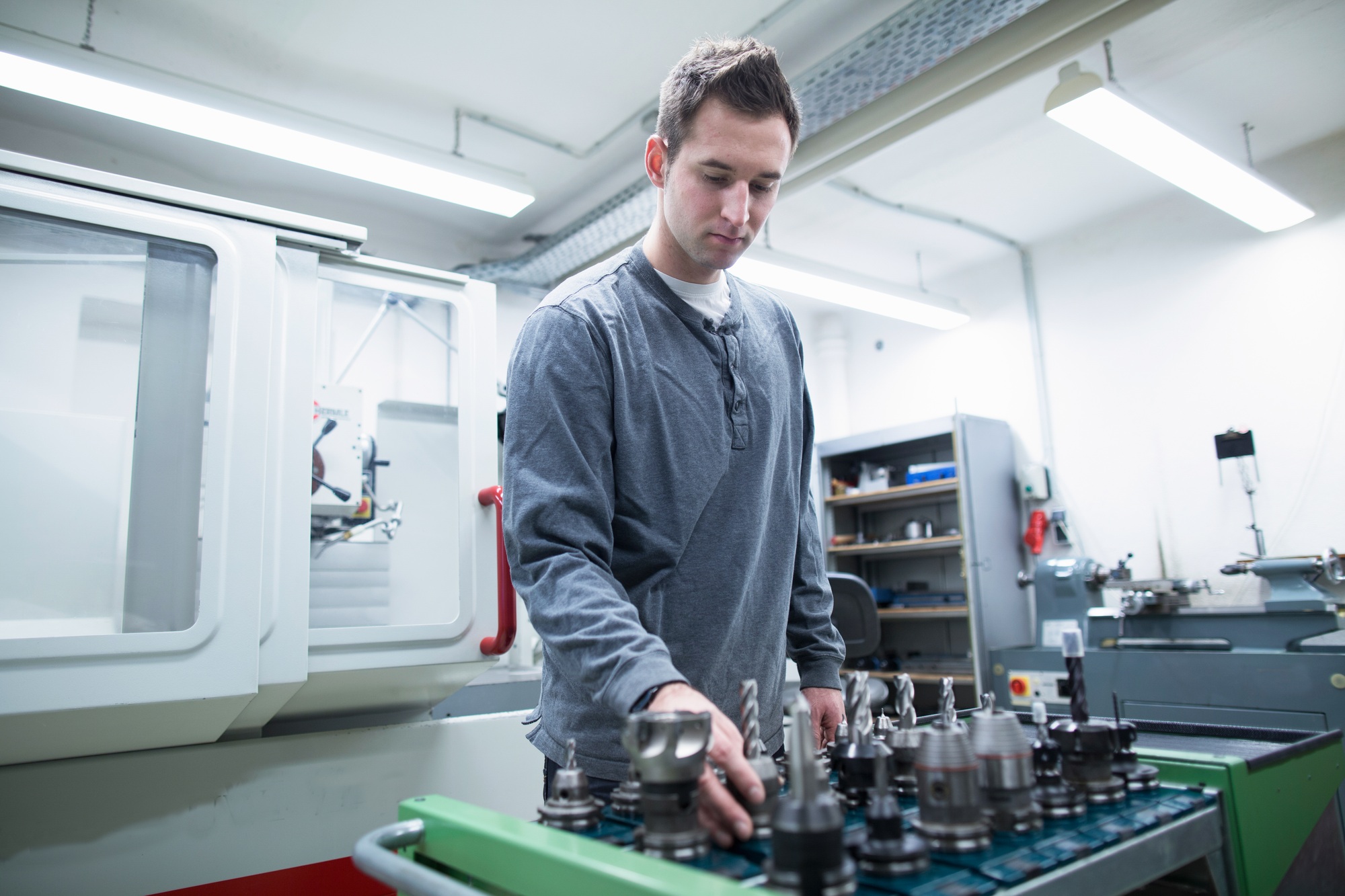Key Takeaways

- Definition and Role: A millwright is a skilled tradesperson responsible for the installation, maintenance, and repair of machinery in industrial settings, ensuring efficient and safe operations.
- Key Responsibilities: Millwrights are tasked with installing new equipment, performing routine maintenance, and troubleshooting machinery to minimize downtime and enhance productivity.
- Required Skills: Successful millwrights need a blend of technical skills (like blueprint reading and mechanical system knowledge) and soft skills (such as problem-solving and effective communication).
- Educational Background: A high school diploma and completion of vocational training or apprenticeship programs are typically required, alongside potential certifications to enhance credibility.
- Work Environment: Millwrights primarily operate in industrial settings, including manufacturing plants and construction sites, emphasizing the importance of safety protocols to prevent accidents.
- Importance in Industry: Millwrights play a vital role across various sectors, contributing to equipment reliability and cost savings, which are especially important for small businesses seeking efficiency.
If you’re considering a career as a millwright, understanding the job description is crucial. Millwrights play a vital role in the maintenance and installation of machinery in various industries, from manufacturing to construction. Their expertise ensures that equipment operates efficiently and safely, making them indispensable to any team.
Overview of Millwright Job Description

Understanding the millwright job description is crucial for small business owners and HR employees when staffing and managing human resources. Millwrights play a key role in the maintenance and installation of machinery, ensuring optimal performance in various industries.
Definition of a Millwright
A millwright is a skilled tradesperson responsible for the assembly, installation, and repair of machinery in industrial settings. This position requires expertise in reading blueprints, operating precision tools, and understanding mechanical systems. Millwrights often work on heavy equipment, conveyors, and other complex machinery, ensuring everything operates safely and efficiently.
Importance of Millwrights in Industries
Millwrights are essential in several industries, including manufacturing, construction, and energy. Their expertise contributes to minimizing downtime caused by equipment failures, enhancing productivity. In small businesses, having qualified millwrights can lead to cost savings and improved equipment reliability. HR departments must recognize the importance of millwrights to ensure appropriate staffing and maintain operational efficiency.
Key Responsibilities of a Millwright

Millwrights play a crucial role in ensuring machinery operates efficiently in small businesses. Understanding their key responsibilities aids in staffing decisions for human resources departments.
Installation of Machinery
Millwrights install new equipment and machinery, including constructing foundations, assembling parts, and installing components like conveyors and tram rails. They utilize blueprints and heavy-duty equipment, ensuring accurate installation. Using specialized tools such as micrometers and plumb bobs enables precise alignment. Effective layout management minimizes equipment downtime, which is vital for maintaining productivity in your small business.
Maintenance and Repair Tasks
Millwrights maintain and repair machinery, performing inspections, adjustments, and repairs to keep equipment functioning optimally. They conduct routine preventative maintenance, fill out detailed inspection sheets, and document items needing repair. Regular maintenance helps prevent lengthy downtimes, supporting smooth operations and enhancing the efficiency of your employees.
Troubleshooting and Problem-Solving
Millwrights possess strong troubleshooting skills, identifying issues with machinery and implementing solutions. Quick response to mechanical failures ensures continuity in production, which is essential for small businesses aiming to minimize disruptions. Their problem-solving capabilities contribute to maintaining a reliable workforce and operational productivity, allowing HR teams to focus on staffing strategies that support long-term growth.
Required Skills and Qualifications

Millwrights require a mix of technical and soft skills, along with the right educational background, to perform their duties effectively. Hiring qualified millwrights can significantly benefit your small business by enhancing machinery efficiency and reducing downtime.
Technical Skills
- Proficiency in reading blueprints and schematic drawings ensures accurate assembly and installation of machinery.
- Mastery of mechanical systems enables you to diagnose and fix equipment issues swiftly.
- Knowledge of specialized tools, including hydraulic bolters and welders, aids in effective machinery repairs and maintenance.
- Experience with heavy-duty equipment, such as cranes and jacks, is crucial for handling large machinery safely.
- Familiarity with preventative maintenance techniques keeps equipment operating at peak performance.
Soft Skills
- Strong problem-solving abilities allow you to address mechanical issues promptly and minimize operational disruptions.
- Effective communication skills foster collaboration with construction teams and engineers, ensuring smooth project execution.
- Adaptability helps you adjust to changing work environments and unexpected challenges in machinery repair and installation.
- Attention to detail ensures precision in measurements and machinery alignment, which is essential for reliable operation.
Educational Background
- A high school diploma or equivalent is typically required, providing a foundation in math and science skills.
- An apprenticeship program or vocational training in millwrighting enhances hands-on experience and technical knowledge.
- Certifications from recognized organizations can boost credibility and expertise, making your small business more appealing to potential clients and partners.
Working Conditions and Environment

Millwrights work primarily in industrial settings, where their expertise is vital for machinery maintenance and installation. Familiarizing yourself with the work conditions can aid in effective staffing and employee support.
Typical Work Settings
You’ll find millwrights in various environments such as manufacturing plants, construction sites, power plants, and warehouses. These settings often involve heavy machinery and equipment, necessitating skilled individuals to ensure safe and efficient operations. Understanding these typical work environments helps small business owners assess the needs of their operations and invest in the right talent.
Safety Protocols
Safety is a top priority for millwrights due to the physical nature of their work. You should enforce rigorous safety protocols to protect employees, including personal protective equipment (PPE) usage, proper tool handling, and adherence to safety guidelines while using rigging equipment. Training sessions on these protocols can foster a culture of safety, reducing the risk of accidents and enhancing overall workplace effectiveness.
Conclusion

Understanding the millwright job description is crucial for anyone looking to enter this rewarding field. Millwrights are integral to maintaining the machinery that keeps industries running smoothly. Their unique blend of technical expertise and problem-solving skills ensures equipment operates efficiently and safely.
As you consider a career in this trade or seek to hire skilled millwrights for your business, remember their impact on productivity and operational success. Investing in qualified millwrights not only enhances equipment reliability but also contributes to a safer work environment. By prioritizing this role, you’re setting the foundation for long-term growth and efficiency in your operations.
Frequently Asked Questions

What is the role of a millwright?
Millwrights are skilled tradespeople responsible for the assembly, installation, and repair of machinery in various industrial settings. They ensure efficient and safe operation of equipment, contributing to minimized downtime and enhanced productivity.
What skills are required to become a millwright?
Millwrights need technical skills like reading blueprints, operating precision tools, and understanding mechanical systems. Additionally, soft skills such as problem-solving, effective communication, and attention to detail are essential for success in this role.
Where do millwrights typically work?
Millwrights primarily work in industrial environments including manufacturing plants, construction sites, power plants, and warehouses. These settings require an understanding of equipment operation and maintenance to ensure operational efficiency.
Why are millwrights important for small businesses?
Qualified millwrights help small businesses save costs and improve equipment reliability by performing routine maintenance and repairs. Their skills also reduce machinery downtime, allowing businesses to focus on growth and operational strategies.
What educational background is needed to become a millwright?
Typically, a high school diploma is required, along with additional training through apprenticeship programs or vocational training in millwrighting. Certifications can further enhance a millwright’s credibility and job prospects.
What are common responsibilities of a millwright?
Millwrights install new machinery, perform routine maintenance and repairs, and troubleshoot mechanical issues. Their work ensures that machinery functions optimally, supporting smooth operations and reducing production downtime.
How can millwrights ensure workplace safety?
Millwrights prioritize safety by following rigorous safety protocols, using personal protective equipment (PPE), and properly handling tools. Regular training sessions on safety measures help foster a culture of safety in industrial environments.
Image Via Envato



